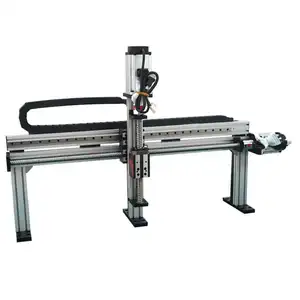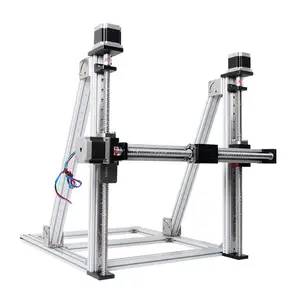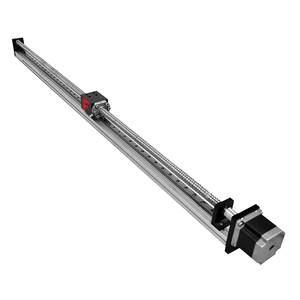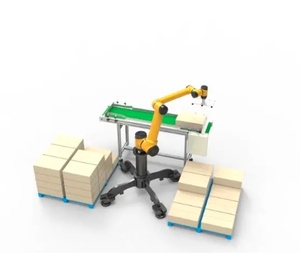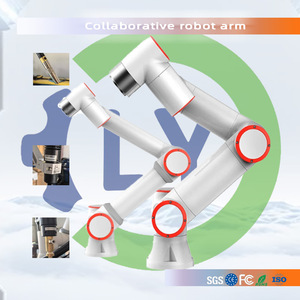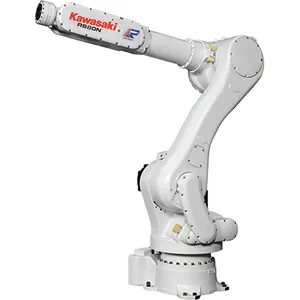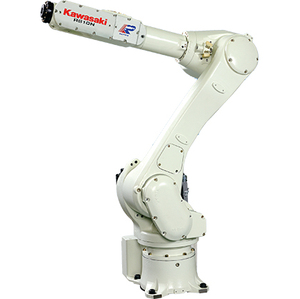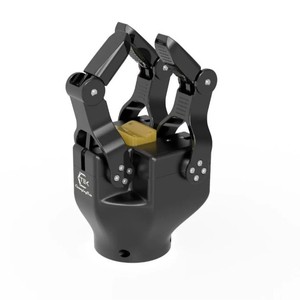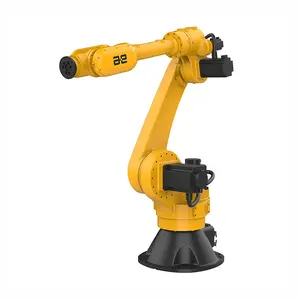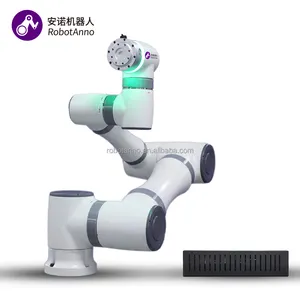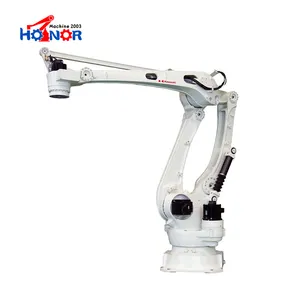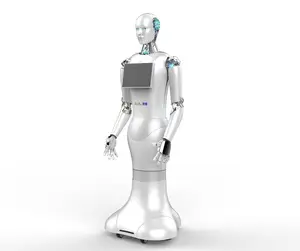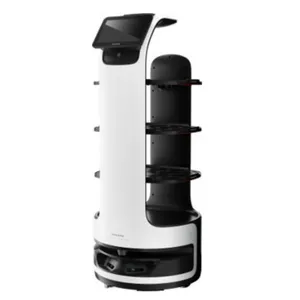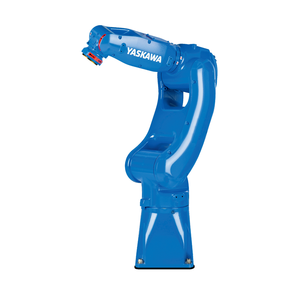Types Of Robots Used In Manufacturing





 Top sponsor listing
Top sponsor listing









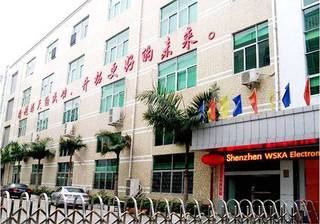
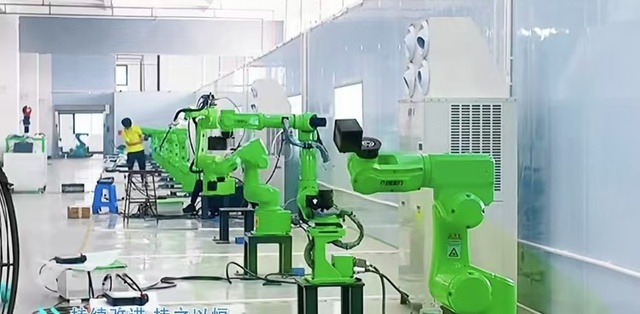

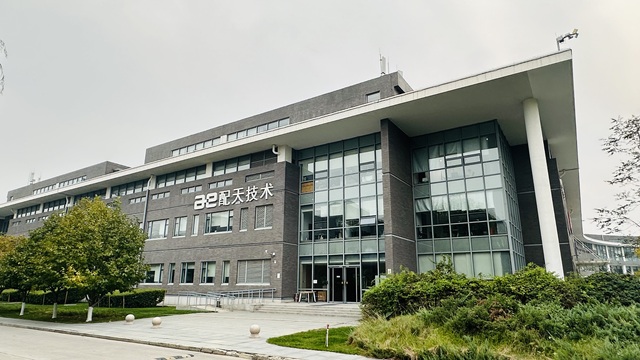

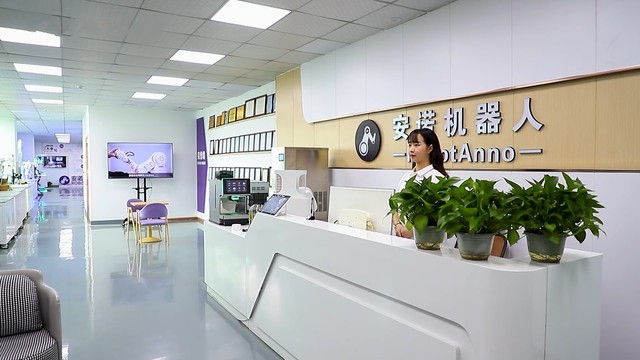


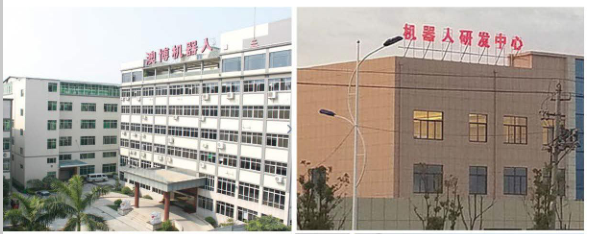




About types of robots used in manufacturing
Where to Find Suppliers for Types of Robots Used in Manufacturing?
China remains a central hub for industrial robotics production, with key manufacturing clusters concentrated in Guangdong, Sichuan, and Shandong provinces. These regions host vertically integrated supply chains that support rapid prototyping and scalable production of diverse robotic systems—from articulated arms to linear and collaborative robots. Guangdong's Pearl River Delta region specializes in high-precision automation equipment, leveraging proximity to electronics and automotive assembly hubs. Sichuan and Shandong benefit from established machinery ecosystems, offering access to servo motors, linear guides, CNC components, and structural materials essential for robotic integration.
The clustering enables cost efficiencies through localized sourcing of core components such as ball screws, sensors, and control systems, reducing material lead times by 25–40% compared to decentralized manufacturing models. Facilities in these zones typically operate under ISO 9001-aligned quality management systems, with many suppliers equipped for CE compliance to meet export market requirements. Buyers can expect standard lead times of 30–60 days for customized units, with some suppliers offering expedited delivery within 15–20 days for pre-configured models.
How to Choose Suppliers for Industrial Robots?
Selecting reliable robotics suppliers requires rigorous evaluation across technical, operational, and transactional dimensions:
Technical Capabilities and Product Range
Assess the supplier’s core product portfolio to ensure alignment with required robot types—articulated, SCARA, Cartesian (linear), collaborative, or specialized welding/palletizing units. Prioritize vendors demonstrating engineering depth through customization options including payload adjustment (up to 200 kg), travel range, rail length, sensor integration, and control system compatibility (e.g., PLC, PAC). Suppliers listing over 100 active SKUs in specific categories—such as Guangdong Borunte’s 157 articulated robot listings—indicate focused expertise and inventory stability.
Production and Quality Assurance
Verify infrastructure indicators such as dedicated R&D teams, in-house machining capabilities (e.g., CNC, welding), and component sourcing transparency. While formal certifications are not explicitly stated in available data, consistent on-time delivery rates above 95% correlate with robust internal quality controls. Target suppliers maintaining ≤2-hour response times and ≥90% on-time fulfillment, which reflect operational discipline and customer service maturity.
- Minimum viable facility scale: 2,000+ m² for full assembly and testing
- In-house design capability confirmed via provision of CAD drawings or 3D renderings
- Availability of motor, guide rail, and controller integration services
- Documented calibration and load capacity testing procedures
Transaction Reliability and Support
Analyze reorder rates as a proxy for customer satisfaction—suppliers like Stuaa Automation report 100% on-time delivery, though reorder data is unavailable. Favor partners with transparent pricing structures, clear minimum order quantities (typically 1 set/unit), and responsiveness under 3 hours. Escrow-based payment terms and post-delivery inspection windows should be standard. Request performance validation through test reports on repeatability (±0.02 mm typical), cycle life, and environmental tolerance.
What Are the Leading Suppliers of Manufacturing Robots?
| Company Name | Main Products (Listings) | On-Time Delivery | Response Time | Reorder Rate | Online Revenue | Customization Options |
|---|---|---|---|---|---|---|
| Chengdu Fuyu Technology Co., Ltd. | Linear Guides (523), Linear Robots (6) | 97% | ≤2h | 20% | US $320,000+ | Yes – motor, guide length, payload, rails, screw diameter, sensor, load capacity, travel |
| Stuaa Automation (Qingdao) Co., Ltd. | Other Welding Equipment (199), Metal Coating Machinery (49) | 100% | ≤5h | - | - | Limited – focused on welding robot configurations |
| Guangdong Borunte Robot Technology Co., Ltd. | Articulated Robots (157), Collaborative Robots (32) | 66% | ≤3h | 66% | US $20,000+ | Moderate – precision robotic arms, OEM/ODM support |
| Jinan Stark Machinery Equipment Co., Ltd. | Conveyors (205), Collaborative Robots (92) | 92% | ≤1h | 33% | US $80,000+ | Yes – multi-robot coordination, palletizing, adhesive dispensing |
| Jinan Lingyu International Trade Co., Ltd. | CNC Robots (multiple variants) | 89% | ≤1h | 20% | US $40,000+ | Basic – color, material, size, logo, packaging |
Performance Analysis
Chengdu Fuyu stands out for its extensive component ecosystem and strong delivery reliability (97%), making it suitable for integrators requiring modular linear robot systems with customizable motion parameters. Stuaa Automation demonstrates flawless on-time performance and specializes in MIG welding robot workstations priced between $6,500 and $330,000, ideal for metal fabrication lines. Despite lower on-time delivery (66%), Guangdong Borunte shows high customer retention (66% reorder rate), suggesting effective after-sales support and product reliability in collaborative and articulated robot segments. Jinan Stark excels in responsiveness (≤1h) and offers scalable solutions for automated palletizing and assembly tasks. Jinan Lingyu focuses on entry-level CNC-integrated robots with basic aesthetic customization, targeting budget-conscious buyers seeking simple automation upgrades.
FAQs
What types of industrial robots are most commonly available from Chinese suppliers?
The most widely offered types include 6-axis articulated robots, collaborative robots (cobots), linear (Cartesian) robots, and application-specific variants such as welding, palletizing, and depalletizing robots. SCARA and parallel robots are less common but available through specialized vendors.
What is the typical MOQ and pricing range for manufacturing robots?
Minimum order quantity is typically 1 unit or set. Pricing varies significantly by type and capability: collaborative robots start at $10,500/unit, while high-end 6-axis industrial arms reach $330,000/set. Entry-level robotic arms for electronics or light assembly begin at $999.
Can suppliers provide custom robotic systems?
Yes, many suppliers offer OEM/ODM services with customization options for payload (up to 200 kg), stroke length, mounting configuration, sensor integration, and control interface. Lead time for custom designs ranges from 30–50 days depending on complexity.
Do these suppliers comply with international safety and quality standards?
While explicit certification data (e.g., ISO, CE) is not provided in public profiles, suppliers with CE-marketed products typically adhere to relevant EU machinery directives. Buyers should request conformity documentation and conduct third-party audits for critical deployments.
How long does it take to receive a sample or prototype?
Sample production timelines range from 15–30 days for standard models. Custom prototypes require 35–50 days, including design review, component sourcing, and functional testing. Air freight adds 5–10 days for international delivery.









